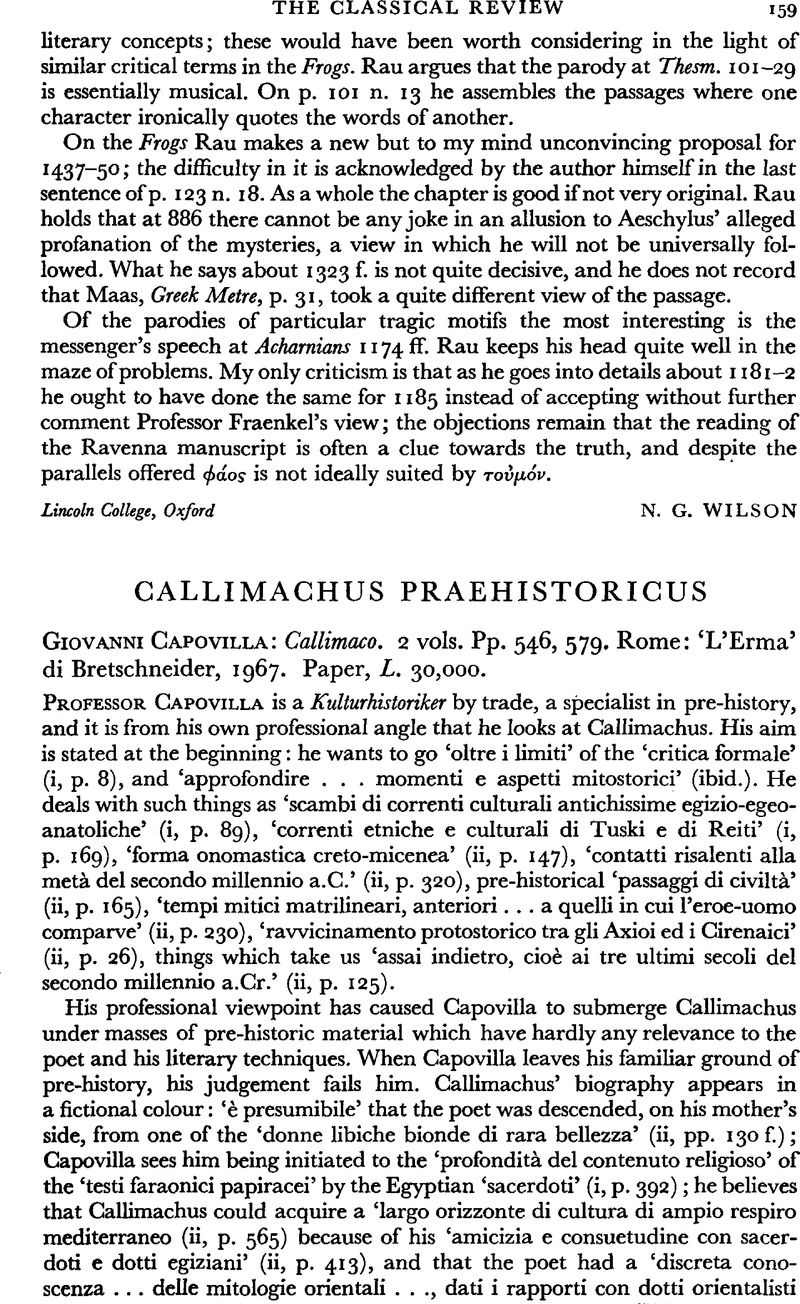No CrossRef data available.
Article contents
Callimachus Praehistoricus - Giovanni Capovilla: Callimaco. 2 vols. Pp. 546, 579. Rome: ‘L'Erma’ di Bretschneider, 1967. Paper, L. 30,000.
Published online by Cambridge University Press: 27 February 2009
Abstract

- Type
- Reviews
- Information
- Copyright
- Copyright © The Classical Association 1969
References
page 160 note 1 The epigram is, of course, erotic. For its interpretation cf. Eranos 1969, forthcoming. I might as well add now that, if the Lysanies of the epigram is really to be identified with the one who was at school with Callimachus, this would be no obstacle at all to their being lovers (cf. Gow–Page ad loc.): indeed, everything would fit ά merveille. Callimachus may well have been considerably the elder, and the teacher Eratosthenes may well have been faced, as regards Callimachus and Lysanies, with the problems described by Juvenal 7. 239 (ne faciant). Callimachus' epigram may well date from his student days (as is the case with Posidippus A.P. v. 34 = Gow-Page 3054 ff.; epigram correctly dated by Schott): from a scholastic matter, the study of Cyclic poetry, he got the pretext to move on to the erotic theme.
page 160 note 2 Hell. Epigr. auf Dichter, Diss. Basel, 1937, p. 61.Google Scholar Capovilla follows Eichgrün (Kallimachos und Apollonios Rhodios, Diss. Berlin, 1961, p. 69)Google Scholar, who has misunderstood the epigram and thinks that Callimachus, in self-contradiction, wants to say ‘dass dem Kreophylos eine unverdiente Ehre zuteil geworden ist’.
page 160 note 3 Cf. Sympotic Literature and Epigram, in Entretiens Hardt 1967, forthcoming.Google Scholar
page 161 note 1 On the problem cf. De Jan,De Callimacho Homeri interprete, Diss. Strassburg, 1893, pp. 20ff.Google Scholar
page 161 note 2 Modern etymologists explain δόρΞ as derived volksetymologisch from δέρκομαι: Eustathius thought along these lines (1259, 61 ff.).
page 161 note 3 i, p. 277: of course every Literatur historiker would reply ‘in senso negativo’; i, p. 199 ‘si direbbe’, and ii, p. 453 ‘non puὸ non sorprendere’: these are usual features Hellenistic literature.




